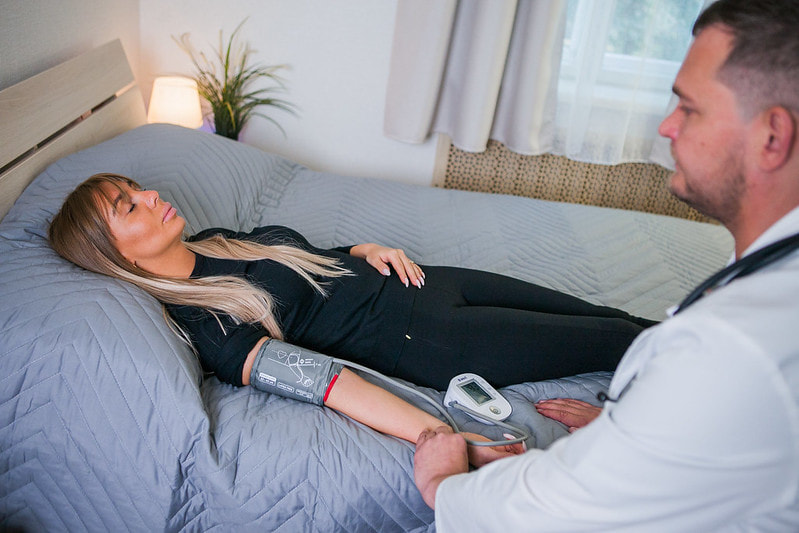Alcohol and Drug Detox Under Our Medical Supervision
Detox is the first step toward your recovery. Addiction has already taken too many lives; don’t let it take yours. We understand the root causes of your addiction. That helps you and our team deal with it the right way. You might be afraid to detox because you may have experienced withdrawal symptoms before. It is true that some of the symptoms may be painful, severe and potentially life-threatening if they are not managed properly.
However, each person experiences the withdrawal symptoms differently. The severity of the withdrawal symptoms depends on the type and the number of substances you used, how long you used them and your body’s condition during detox. Our experienced medical team will safely manage your withdrawal symptoms and help you overcome any difficulties. We use the benefits of pharmacology and balanced nutrition to increase the level of comfort during withdrawals.
In extreme cases of dehydration, we apply IntraVenous (IV) therapy which helps manage the symptoms, as well as hydrating and replenishing your body with fluids and electrolytes. Detoxing process involves the assessment and the plan of care that is achieved through your collaboration with our professional team.
Our first assessment involves different aspect that affects or may harm our client’s health and well-being. It includes the physical, psychosocial, and mental health (including family history) aspects. Prescribed and non-prescribed medications, non-medicinal (herbal or natural) substances, coping abilities and concerns are also part of a good assessment. The information we collect during assessment serves us to effectively develop the treatment plan that works for you.
At UMATTERCARE the client is fully involved in the development of the treatment plan which is based on the client’s specific needs and strengths. Our approach is client-centred care therefore we consider the client’s collaboration as a power source for a successful detox.
During the days of detox, our medical team provides around-the-clock care and monitoring. Because the detoxing period is the hardest for our clients, we must help them feel as comfortable as possible. We understand that during this period clients are physically and mentally vulnerable. Therefore, we combine prescribed medications, healthy nutrition and counselling to prevent complications and reduce withdrawal symptoms.
Quitting alcohol or drugs “cold turkey” can be dangerous to your health. Remember that the body has been operating under the control of the substance or substances. Abruptly stopping them may “confuse the brain” and force the body to go into a state of shock. That can lead to serious issues such as seizures and, in some cases, coma. However, it is always good to become well informed before making any decision to stop alcohol or drugs.
Nursing care around the clock
Healthy nutrition
Individual counselling is based on the client’s ability
IntraVenous therapy if needed
In and outdoors relaxing therapy is based on the client’s tolerance
After the body has detoxed from the drugs or the alcohol, and has been slowly introduced to healthy nutrition, the recovery process starts.
A withdrawal state is the body’s state of the person detoxing from drugs and or alcohol after a long-time use and/or abuse. Withdrawal symptoms can last from days to weeks, and there are acute, chronic or extended withdrawals. It all depends on the substance or substances that were taken, the length-in-time of use of the substance and the amount of the substance intake.
Withdrawal symptoms are different for each person.
The most common are:

Detoxing from substance use, drugs or alcohol can be done in the comfort of your home or at our facility, under medical supervision. Research has shown that poorly managed detox can cause seizures and other complications such as death.
Before deciding to detox alone consult with our medical team who can help you choose the safest way to detox, regardless of if you decide to stay at home or go to a facility.